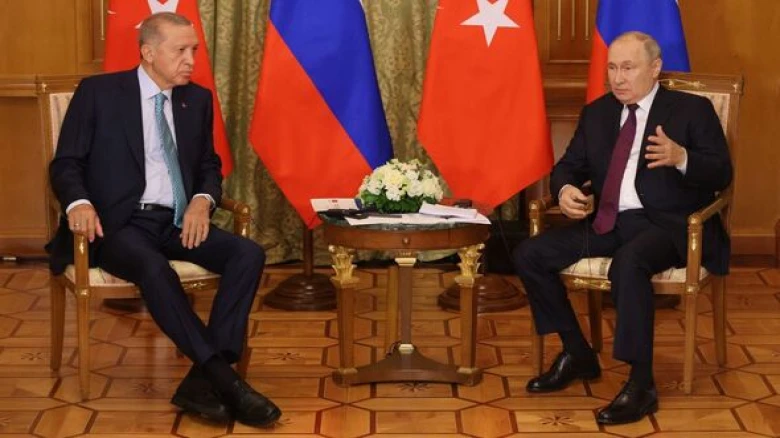Regional
His legacy reminds us of the importance of self-reliance, courage,...

President Erdogan's mistakenly translated statement declaring war on Russia sent shockwaves through the...
Digital Desk: In a bizarre turn of events, a translation error led to a momentary diplomatic standoff between Turkey and Russia during a meeting between President Recep Tayyip Erdogan and President Vladimir Putin in Sochi on September 4. President Erdogan's mistakenly translated statement declaring war on Russia sent shockwaves through the room, but Putin's calm response quickly defused the situation.
As the two leaders gathered in Sochi to discuss various matters, including the ongoing Ukraine-Russia tensions, President Erdogan's opening remarks took an unexpected and dramatic turn. The interpreter mistakenly conveyed his statement as saying, "There is a war between Russia and Turkey." Erdogan continued, "And your invitation, we are glad to have received this invitation. My delegation is glad to have received this invitation," referencing the backdrop of the visit as the Ukraine-Russia situation.
The error was first identified by an official interpreter at the summit, known on Telegram as "Crimean Wind." However, it remains unclear whether the interpreter responsible for the misinterpretation was Russian or Turkish.
President Putin, despite the initial confusion, did not react to Erdogan's apparent declaration of war. Instead, he focused on expressing his frustration with the West's handling of the Black Sea Grain Initiative, which aimed to facilitate the safe passage of grain exports from Ukraine through the Black Sea.
Putin accused Western partners of cheating Russia by not fulfilling their promises regarding the initiative. Russia had previously announced its withdrawal from the agreement, brokered by Turkey and the UN, citing unmet demands related to sanctions on its own agricultural exports.
In a statement, Russia's Ministry of Foreign Affairs asserted that the Black Sea initiative had failed to fulfill its humanitarian mission, with less than 3 percent of the 32.8 million metric tons of shipments going to countries in need. Instead, they claimed, the initiative was being exploited by Ukrainians to target Russian facilities.
The incident serves as a stark reminder of the delicate nature of international diplomacy and the importance of accurate translation in high-stakes meetings. Following a brief moment of tension, both leaders continued their discussions on pressing matters, working towards finding common ground amid the complex geopolitical landscape in Eastern Europe.
As the dust settles on the translation error, both Turkey and Russia are expected to proceed with their diplomatic engagements, seeking solutions to the ongoing challenges in the region.
Leave A Comment